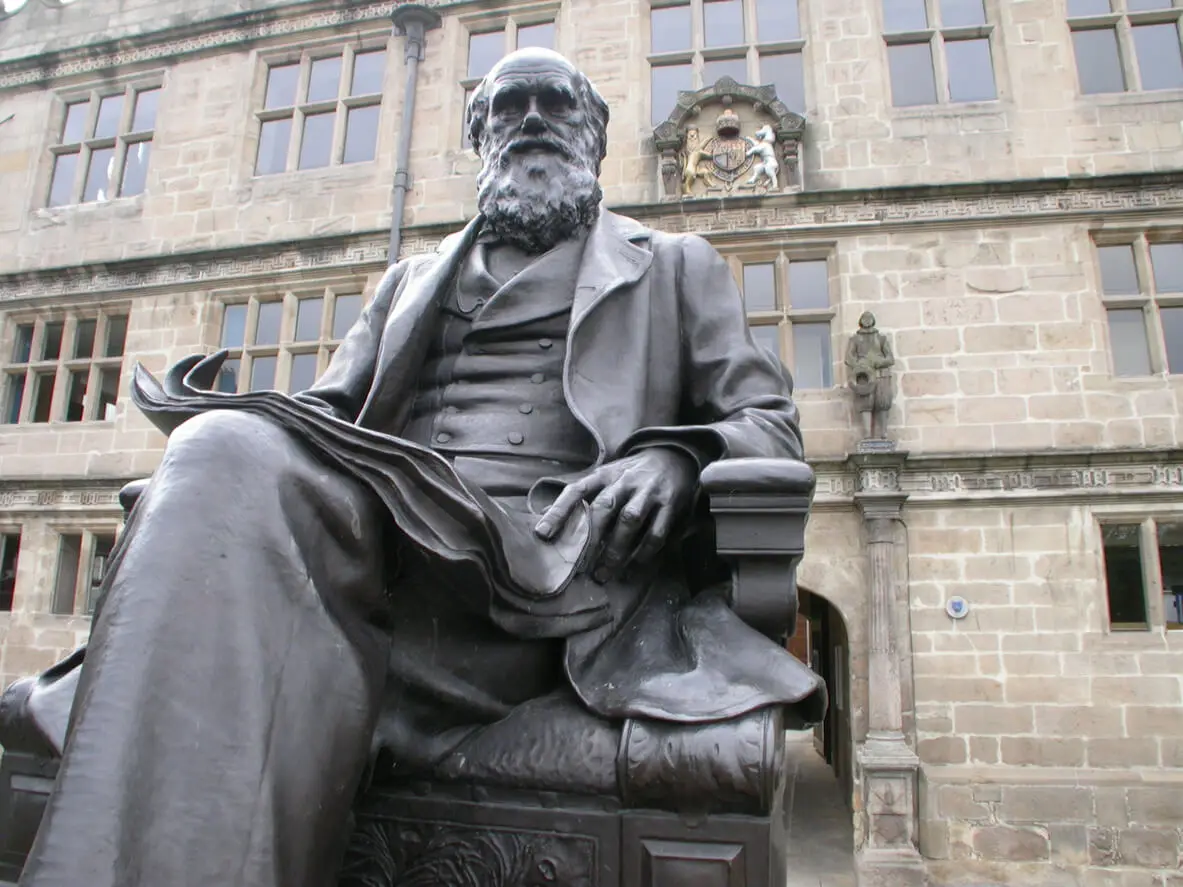Social Darwinism: An Idea that Should Never Have Existed?


Written and verified by the philosopher Maria Alejandra Morgado Cusati
Social Darwinism is a theoretical position that emerged at the end of the 19th century that expanded Darwin’s theory of evolution to sociology, economics and politics. In other words, it applied the biological concepts of natural selection and the struggle for existence to explain the laws of social development and the relationships between humans.
In this sense, social Darwinists defend that the best-endowed and strongest humans are those who remain in power and predominate over the weakest.
This theory has been used to justify imperialism, racism, the conquest of territories, and the subjugation of the population. It justifies the idea that some superior ethnicities or races should prevail and dominate in society. Let’s go deeper.
Darwin’s theory of evolution
Charles Robert Darwin (1809-1882) was an English natural scientist who made several contributions to evolutionary biology. In his most famous work, The Origin of Species (1859), he theorized the evolution of organisms as a function of two processes:
- The struggle for existence.
- Natural selection (or survival of the fittest).
On the one hand, the struggle for existence defends that, in nature, living organisms are in constant conflict in order to survive in the environment. In this case, dependence on specific factors forces them to compete and destroy each other for the limited resources available. An example of this would be the struggle between animals for food or to mate.
Natural selection is the process by which better-adapted organisms displace less-adapted ones through the slow accumulation of favorable genetic changes over generations. In this sense, natural selection refers to the advantages that some have over others.
These two concepts are interdependent in Darwin’s theory of evolution. In this case, natural selection depends on the struggle for existence, which would be the engine of evolution.

You may be interested in: Who Were the Sophists and What Contributions Did They Leave Us?
Origin of Social Darwinism
The origin of Social Darwinism is attributed to the philosopher and sociologist Herbert Spencer (1820 – 1903), who adapted Darwin’s evolutionary notions to human societies. In his work The First Principles (1862), Spencer qualifies human social groups as organisms governed by the laws of nature within an evolutionary framework.
In this sense, the author defines social evolutionism as follows:
The passage from an incoherent homogeneity to a coherent heterogeneity, as a consequence of a dissipation of movement and an integration of matter.
With this statement, Spencer argued that human social groups are transformed from an undifferentiated and horizontal population (incoherent homogeneity) to an organization stratified by rulers and ruled (coherent heterogeneity). Such social transformation, in which the rulers impose themselves and eliminate the “less fit” ruled, he justifies through natural and biological processes – the struggle for existence and natural selection.
Darwin and social Darwinism
Today, there is controversy as to whether Darwin supported social evolutionism. Defenders of the natural scientist argue that he himself declared himself doubtful of the proposal, opposing the application of the mechanism of natural selection to human societies.
However, various critics take the opposite view. They argue that Darwin never differentiated between “biological evolution” and “social evolution.”
What is true is that Darwin postulated that people were divided into “civilized” and “savage” races, based on cranial differences. Therefore, on a supposed asymmetry of intelligence. Thus, he described Europeans as those with the greatest intellectual capacity, while Asians and Australian Aborigines would be those with the least capacity.
Also, in his work The Origin of Man (1871), he addressed the way in which he believed that natural selection affected the so-called “civilized nations”. There he uses the concepts of “inferior race” and “superior race”. He argues that the proliferation of inferior races affects the numerical increase of those “men of superior qualities.”
Read more: What is Collectivism?
Consequences of the postulates of social evolution
Although social Darwinism initially emerged as a sociological theory, its postulates served as inspiration for a set of political and social movements that justified the structures of domination and the capitalist economic system.
Nazism is one of the clearest examples of the appropriation of the ideas of social Darwinism. The postulates of superiority of one race over another and the idea that human evolution is given by the survival of the fittest, inspired the atrocious acts of Hitler and his followers.
In his essay My Struggle (1925), Hitler stressed the importance of blood purity and raised arguments parallel to those of Spencer, defending the need for a society based on a scheme of elite domination. This led him to the mass extermination of what he considered “inferior races” (Jews, blacks, homosexuals, among others) and to the promotion of maternity and eugenics programs, aimed at the reproduction of Aryan genes and the formation of girls and boys with the ideology of the party.
In turn, it’s possible to identify how Darwin’s ideas have influenced gender constructs and have deepened the domination of the male gender over the female. For example, in The Origin of Man (1871), Darwin makes the following distinction:
Man differs from woman in size, muscular strength, speed, etc., as well as in intelligence, as happens between the two sexes in many mammals.
This idea permeated social Darwinism and fostered a social structure of domination of men over women. The former are considered stronger, fitter, and more intelligent.

Social Darwinism today
Social Darwinism lost its status as a scientific theory after World War I and was completely discredited by the end of World War II. This was due to its association with Nazism and the growing scientific consensus that it was unfounded.
In fact, biologists and historians have claimed that it is a naturalistic fallacy. The theory of natural selection only purports to describe a biological phenomenon, which is not expandable to human society.
All cited sources were thoroughly reviewed by our team to ensure their quality, reliability, currency, and validity. The bibliography of this article was considered reliable and of academic or scientific accuracy.
- Darwin C. El origen de las especies. España: Grupo Planeta; 2014.
- Espina A. Presentación. El darwinismo social: de Spencer a Bagehot. Reis [Internet].2005 [consultado 28/10/2022]; (110):175-187. Disponible en: https://www.redalyc.org/pdf/924/92445928003.pdf
- Salvucci E. El rol del darwinismo en la legitimación de la opresión. Revista CTS [Internet]. 2016 [consultado 28/10/2022]; 11(32): 37-48. Disponible en: https://www.redalyc.org/pdf/924/92445928003.pdf
- Spencer H. Los primeros principios. Editorial Comares; 2008.
This text is provided for informational purposes only and does not replace consultation with a professional. If in doubt, consult your specialist.








